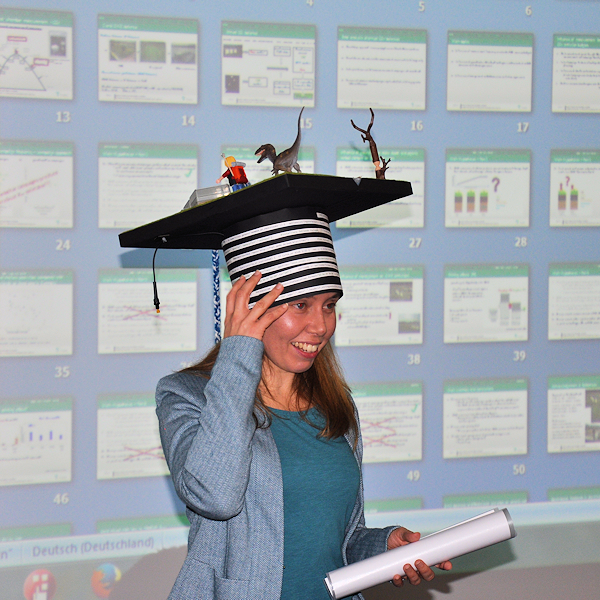
On 16.12.2015, Katharina Leiber-Sauheitl successfully defended her doctoral thesis on greenhouse gas emissions from managed organic soils at the Leibniz University of Hannover.
Deep organic soils occurring at drained peatland sites represent large sources for CO2, CH4 and N2O emissions under grassland and cropland management and contribute significantly to the German greenhouse gas balance. In her doctoral thesis, Katharina Leiber-Sauheitl investigated the relevance of shallow organic soils in terms of their greenhouse gas emissions by manual CO2 measurement campaigns. As a result the greenhouse gas balance of shallow organic soils of 3 to 9 tons CO2-equivalents per hectare and per year is in the same range as deep peat sites.
[Publikation]
How often do CO2 fluxes have to be measured in order to receive reliable results? In order to answer this question, a highly resolved CO2 flux data set was evaluated in this PhD thesis. As a result campaigns on sunny days starting before sunrise and lasting until the late afternoon should be considered. In order to determine a robust annual carbon balance on a shallow organic soil under grassland cultivation, a measurement interval of three weeks turned out to be optimal.
Additionally, the influence of grazing on the decomposition of organic peat carbon and nitrogen was investigated. In cooperation with the Friedrich Loeffler Institute for animal nutrition sheep faeces and urine enriched with 13C and 15N stabile isotopes were applied on peat columns in a microcosm experiment. No enhanced decomposition of peat carbon and nitrogen by the application of sheep excreta was observed.
As results of this doctoral thesis reveal, shallow organic soils release the same huge amount of greenhouse gas emissions as deep peat soils. Therefore, they have to be considered in the national greenhouse gas inventories.
Link: https://www.thuenen.de/de/ak/projekte/verbundprojekt-organische-boeden/

![[Translate to English:] [Translate to English:]](/media/_processed_/6/4/csm_titel_CO2Kampagne8_afeea2273e.png)
![[Translate to English:] [Translate to English:]](/media/_processed_/4/1/csm_titel_93px_CO2Kampagne8_9b0f3354d4.png)





